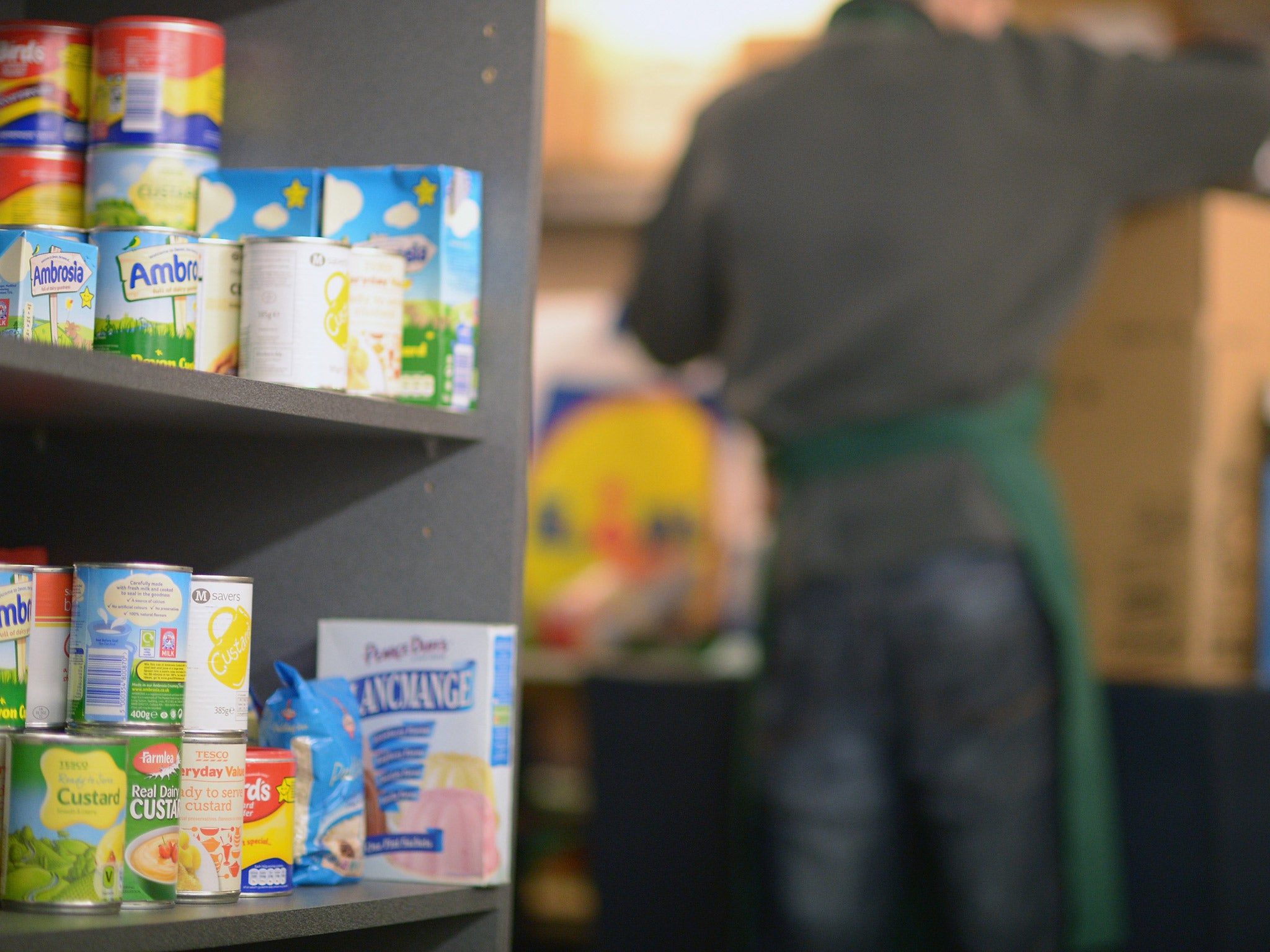Food bank users at risk of developing nutritional problems, warns expert
Some users have been fed by the charities for up to 12 weeks

Your support helps us to tell the story
From reproductive rights to climate change to Big Tech, The Independent is on the ground when the story is developing. Whether it's investigating the financials of Elon Musk's pro-Trump PAC or producing our latest documentary, 'The A Word', which shines a light on the American women fighting for reproductive rights, we know how important it is to parse out the facts from the messaging.
At such a critical moment in US history, we need reporters on the ground. Your donation allows us to keep sending journalists to speak to both sides of the story.
The Independent is trusted by Americans across the entire political spectrum. And unlike many other quality news outlets, we choose not to lock Americans out of our reporting and analysis with paywalls. We believe quality journalism should be available to everyone, paid for by those who can afford it.
Your support makes all the difference.People who rely on food banks risk developing nutritional problems because of the lack of fresh produce, an expert has warned.
Nearly a million people were helped by food banks in 2013-14, but the meals handed out are designed to be emergency relief. However, some users have been fed by the charities for up to 12 weeks.
Mel Wakeman, a Birmingham City University lecturer in health and nutrition, told The Guardian that she and her students had analysed the food that is usually given.
“We found that it’s very much processed food being donated, with little fresh produce. The meal plans we came up with revealed that in the long term there is a real risk of children and families becoming deficient in fibre, calcium, iron and a variety of vitamins,” she said.
“We’re not criticising what food banks are doing and, of course, only food that is safe to eat should be available, which limits the handling of perishable food.”
Tinned soup, meat, puddings and pasta sauce were common types of food on offer.
“I would like to see more fresh produce in there. If levels of poverty continue to rise, then the level of support given to food banks may have to be increased so we don’t have a situation where families are prevented from accessing nutritious food,” Ms Wakeman said.
“Over longer periods, eating donated food that is often refined could result in nutritional deficiencies.”
The largest food bank charity, the Trussell Trust, tries to ensure food bank users do not become dependent on them and that supplies are only given for emergencies, not the long term. It aims to provide “nutritionally balanced” food but only some of its outlets offer fresh produce.
Adrian Curtis, the trust’s food bank network director, said: “Although we do not place a limit on the length of support we offer to clients, our systems monitor usage with referral organisations to avoid dependency.”
Join our commenting forum
Join thought-provoking conversations, follow other Independent readers and see their replies
Comments